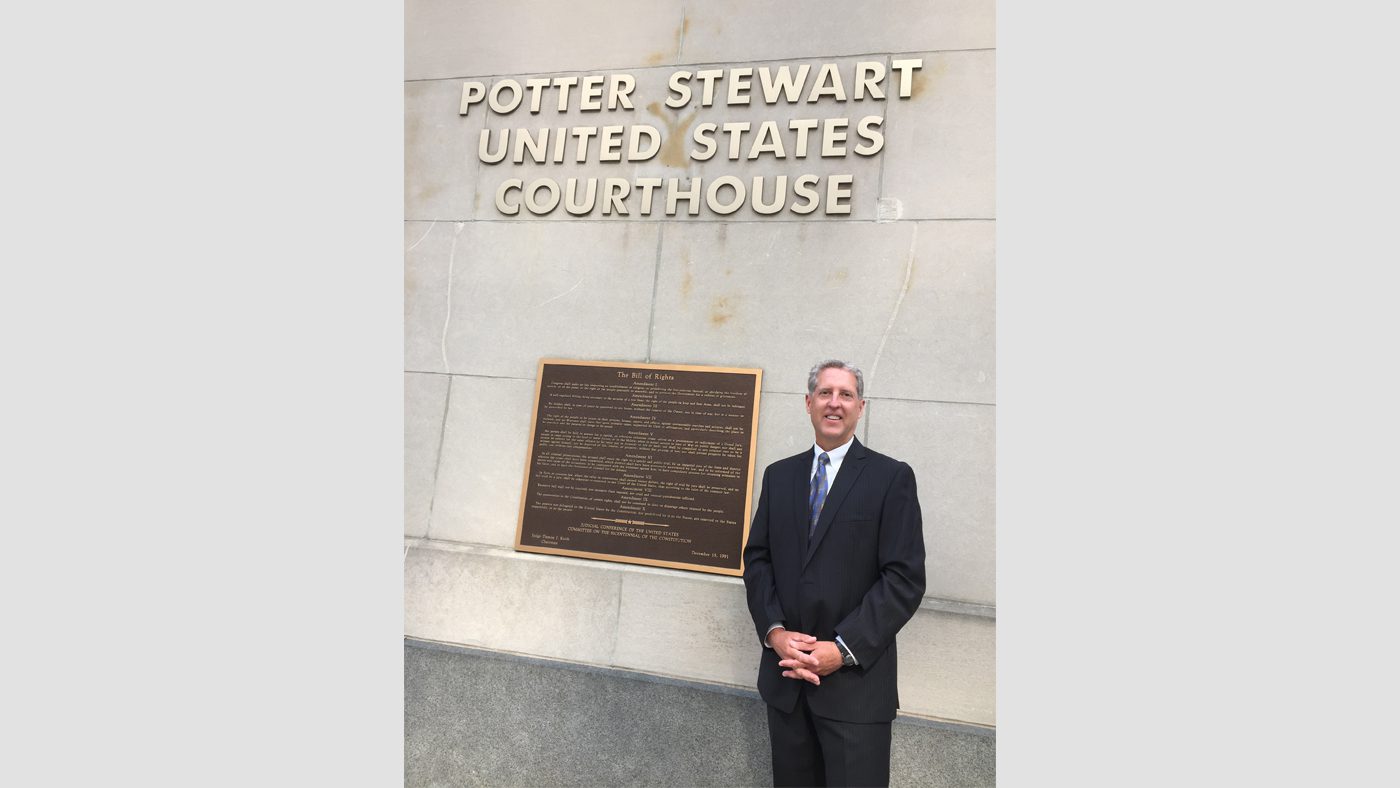Richard Norton, a professor of urban and regional planning, recently represented the Michigan Association of Planning and Michigan Environmental Council in oral arguments before the U.S. Court of Appeals for the Sixth Circuit in Cincinnati.
Norton, who has a juris doctor degree in addition to a doctorate in city and regional planning, represented the organizations as a “friend of the court” (amicus curiae) on a case involving a tree preservation ordinance in Canton Township, located northeast of Ann Arbor. A property owner in the township cut down about 200 trees several years ago without replanting any replacement trees, as required by the township’s ordinance, and then sued the township when it enforced its ordinance. He argued that the ordinance effected a “regulatory taking” — that the township effectively took his property via regulation rather than taking it through eminent domain and compensating him as it should have — in violation of the U.S. Constitution. He won his case at the trial court level before the U.S. District Court in Detroit.
Norton agreed to represent the Michigan Association of Planning and Michigan Environmental Council and file an amicus brief based on the belief that the trial court judge erred in his rulings in a number of respects and out of concern that if the court’s rulings are upheld, it could seriously undermine local efforts to conserve natural resources.
While it’s not unusual for a court of appeals to accept an appellate brief filed on behalf of an amicus, it is highly unusual to allow an amicus to participate in oral arguments before the court. “I’ve had a number of legal colleagues tell me that they’ve never heard of that happening,” said Norton. “I think the issues in the case are so complex and nuanced (and pretty arcane), the court allowed me, along with another attorney representing another amicus arguing in support of the property owner, to participate in order to help fully brief all of the important issues.”
The court should issue its decision sometime in September.
Read the amicus brief here.





